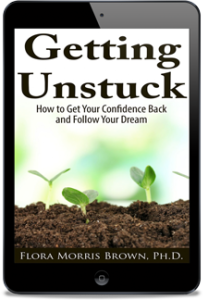
[Photo by phil h on Flickr]
One constant that I see in the literature on happiness, personal growth, and prosperity is the importance of forgiveness and yet, many struggle with it, stress about it and some even suffer from it. Let’s face it, forgiveness just not come easy for most of us.
The Bible is clear on forgiveness in a number of places. One of them is Colossians 3:13
Bear with each other and forgive whatever grievances you may have against one another. Forgive as the Lord forgave you. (NIV)
Then we have the words of people who have survived horrific suffering, such as Corrie Ten Boom, the Holocaust survivor who tells why we should forgive
Forgiveness is to set a prisoner free, and to realize the prisoner was you.
Even when we are warned that failure to forgive can increase our blood pressure, stress and risk of alcohol and substance abuse, there are several reasons that still make us hesitate.
Forgiveness will not guarantee reconciliation of a relationship or a change in the offender. As a matter of fact we may believe that we are somehow punishing the offender by withholding our forgiveness or that we are letting them get away by forgiving them.
This morning when I was thinking about this topic I posted the following statement on Facebook:
Forgiveness keeps coming up as a key component of happiness and prosperity. Think I’ll blog about it.
Within a few hours I got the following reactions
Without forgiveness there can be no true happiness.
To which I agreed, followed by another Facebook friend’s comment
Forgiving whom…the offender or yourself?? If we forgive the offender it feels like letting them off the hook and giving the message “what you did was okay”..??? I am confused about the forgiving thing. Why do we HAVE to forgive an injustice, abuse, or mistreatment? Isn’t part of the offenders consequences our establishing a personal boundary that excludes that sort of treatment or behavior from our personal world. IF we “forgive” it feels like the wrong message.
Which resulted in this response.
I agree Yvonne!
Then 2 hours later, another comment
I don’t agree that forgiving an offender “lets them off the hook”. They will still be held accountable at the end of their time. A wrong never goes unpunished.
To which I responded to the previous commenter
Forgiving the offender IS for yourself. While you are holding on to the hurt, you are blocking your own good. The offender may not even be aware or care that they have hurt you. This doesn’t mean that you should become a doormat or walking victim. It is certainly useful to confront and bring a hurt to the offender’s attention if that’s possible. But once that’s done, hanging on to the hurt only damages and blocks you. At the same time, it’s your job to protect yourself from hurt by not associating with those bent on hurting you.
Then shortly after
And I don’t agree. I think we can heal and move on and be healthy and whole with out “Forgiving.” The words “I forgive you” mean to me you are no longer held accountable. Whether “God” holds them accountable is not the issue. In this life, in this world, they are “forgiven” and therefore not to be held accountable for the wrong doing. If I hurt someone on purpose, with malice, or even with ignorance. I intend to be held accountable. Law does not forgive us if we mug or rape or kill someone. We are held accountable. The victim can heal and move on and STILL hold the offender as to blame and accountable (unforgiven.)…You don’t have to agree, but this is my reality.
Another comment from the same commenter as above.
One more and I promise to get off my soap box. THe people who feel you HAVE to forgive seem to be people who are very religious. My question is, is that their heart belief or a belief they have been TAUGHT?
Since I checked last, the last comment was
I can only speak for myself. I am not very religious, though I am faithful. I believe in my heart that forgiveness is necessary for true healing to begin. I carried that burden in my heart for a long time. I chose to forgive the person without seeking them out. My reason is simply because people don’t start out bad or evil, they become that way through terrible circumstances of their own. It doesn’t excuse the offense.
This is clearly a heated topic, but we didn’t touch on the other side of the issue.
What if you are the one who needs to be forgiven? Should you contact the other person, even years later, and say “Sorry.”
That’s what some people do, but not always with great results. Sometimes the offended person wasn’t offended at all and doesn’t even remember the incident. Other times the offended has seemed to move on with their lives, but upon your opening the wound gets offended all over again.
Then there are the deathbed apologies, such as a man apologizing to his unsuspecting wife of 50 years for cheating on her 35 years ago. Does he want to be forgiven or just to relieve his guilt so he can die in peace?
Although it doesn’t seem like a good idea to apologize in a public forum or suddenly after many years by email, there are two websites that can aid you if you’re seeking absolution:
ThePublicApology.com — you can post an anonymous apology obviously because you think it will make you feel better. The offended may never read it.
PerfectApology.com–this site gives serious tips and guidance on creating and delivering apologies in personal and business situations
My final words on forgiveness
If you’ve gotten away with murder or cheated your way through Harvard and into your top paying job, your apology is admirable, but be forewarned that it will likely affect your lifestyle and maybe even your life expectancy.


Recent Comments